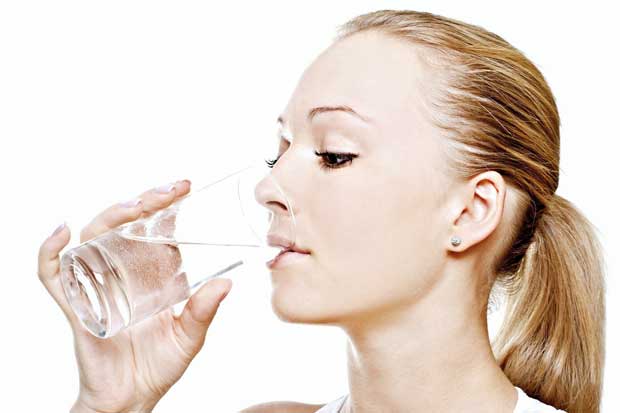07 Jun 2017 - {{hitsCtrl.values.hits}}

 The word, ‘life’ is tightly bonded with the word ‘water’. The first life form on earth is believed to have originated from water. A large percentage of all known life forms are composed of water. About sixty percent of a healthy adult human male body comprises water; this again is divided into water that is contained inside cells and water outside of the cells, in the fluid portion of the blood called the plasma and in the tissue fluid. Water is ingested into our body through both the food and drinks we consume and exits our body through urination, defecation, sweating and through the breath we exhale, in the form of moisture. In order for the body to function properly, the intake and the output of water in the body should be balanced, because so many functions in our body are dependent on water.
The word, ‘life’ is tightly bonded with the word ‘water’. The first life form on earth is believed to have originated from water. A large percentage of all known life forms are composed of water. About sixty percent of a healthy adult human male body comprises water; this again is divided into water that is contained inside cells and water outside of the cells, in the fluid portion of the blood called the plasma and in the tissue fluid. Water is ingested into our body through both the food and drinks we consume and exits our body through urination, defecation, sweating and through the breath we exhale, in the form of moisture. In order for the body to function properly, the intake and the output of water in the body should be balanced, because so many functions in our body are dependent on water.
How much water should a person drink?
The famous saying that a person needs eight glasses of water per day is without scientific basis, because the amount of water that a person requires depends on the amount of water that gets removed from his body. This amount is different from person to person because the quantity of water lost from a person’s body in a day depends on many internal and external factors unique to that person. A person’s age, sex, body weight, his level of activeness, the water content of the food that he consumes, the climate, will all play a part on his daily needs of water. People living in tropical climates like us need relatively more water.
Inadequate water in the body has many consequences. The most immediate effect is dehydration.
Limiting your water intake for a long time can have consequences like urinary stones, constipation, infections in the urinary tract, muscle cramps and high blood pressure.
About dehydration
Dehydration is categorized into mild moderate and severe forms according to it’s level of seriousness. Even though mild and moderate dehydration can usually be reversed with adequate fluid given orally or intravenously, severe or even in some cases, moderate forms, may lead to fatal consequences like fits, brain damage and even death. Dehydration can occur through excess water removal from the body in addition to not drinking enough water. Therefore people who work outdoors for long periods of time resulting in excessive sweating need to drink plenty of water. Patients who have severe vomiting or diarrhea, especially small children and the elderly, need to stay hydrated by taking fluids like Jeewani and rice kanji in addition to water. If oral fluids are not tolerated, it’s important to seek medical help because the patient may need intravenous fluid resuscitation in the form of saline or similar fluids.
Did you know that one of the leading causes of death in severe burn patients is dehydration? Burning causes the upper layers of the skin, which works as a barrier that prevents body water from escaping into the environment to be lost, causing severe water loss leading to shock and sometimes death.
Too much water?
But is there such a thing as ‘Drinking too much water?’ It turns out that there is. It is called water intoxication. This is caused by drinking too much water in a too little time. Our body contains various ions dissolved in the body fluids. The ion levels in the blood, especially the sodium and potassium ion levels, is heavily controlled by the body’s regulatory system. When there is too much water in the system, this causes the sodium in the blood to be diluted, causing the condition called ‘Hyponatremia’. Symptoms may include vomiting, headache, lethargy and convulsions
In addition, in patients who have certain conditions like heart failure and kidney failure, drinking too much water could overload the system, resulting in fatal consequences. In conditions like dengue fever too, the water intake of patients should be limited because it may later cause volume overload.
Drinking water in the morning
Even though not much research has been carried out in western medicine on the benefits of drinking water on an empty stomach, drinking a glass of warm water is recommended in many forms of eastern medicine, including Ayurveda. It is said to help digestion and improve circulation.
23 Dec 2024 8 hours ago
23 Dec 2024 23 Dec 2024
23 Dec 2024 23 Dec 2024
23 Dec 2024 23 Dec 2024